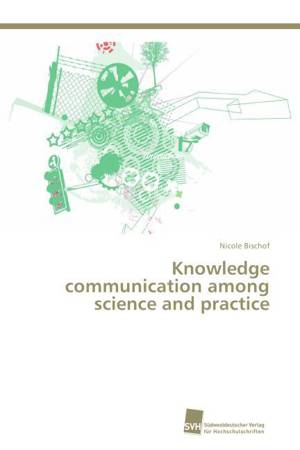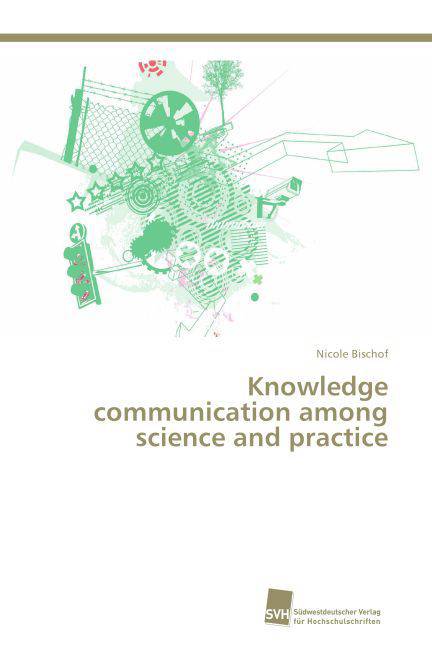
- Afhalen na 1 uur in een winkel met voorraad
- Gratis thuislevering in België vanaf € 30
- Ruim aanbod met 7 miljoen producten
- Afhalen na 1 uur in een winkel met voorraad
- Gratis thuislevering in België vanaf € 30
- Ruim aanbod met 7 miljoen producten
Zoeken
€ 97,45
+ 194 punten
Omschrijving
Knowledge plays a vital role in organizations and management and its communication is a key competence. But it is not only 'knowledge about something' as a resource and capability for competitive advantage that is so important, it is also the social process of 'knowing' which is of high relevance in modern working life. The contribution of this dissertation is thus a managerial approach to improve the quality of knowledge communication by applying the concept of clarity. Secondly, a thorough understanding of the praxis of knowledge communication in a community of practice including actors, artifacts and attitudes (e.g. towards strategic change) is suggested. Such a deep understanding is prerequisite to enable collaboration in practice. A third contribution are patterns of perception of strategic change in a community of practice and recommendations for their antizipation. Finally, a method to use visualizations in qualitative interviewing as a form of knowledge communication is provided. A detailed discussion of practical implications can be found in the final chapter of this dissertation.
Specificaties
Betrokkenen
- Auteur(s):
- Uitgeverij:
Inhoud
- Aantal bladzijden:
- 212
- Taal:
- Engels
Eigenschappen
- Productcode (EAN):
- 9783838138473
- Verschijningsdatum:
- 30/05/2014
- Uitvoering:
- Paperback
- Afmetingen:
- 150 mm x 220 mm
- Gewicht:
- 318 g

Alleen bij Standaard Boekhandel
+ 194 punten op je klantenkaart van Standaard Boekhandel
Beoordelingen
We publiceren alleen reviews die voldoen aan de voorwaarden voor reviews. Bekijk onze voorwaarden voor reviews.








